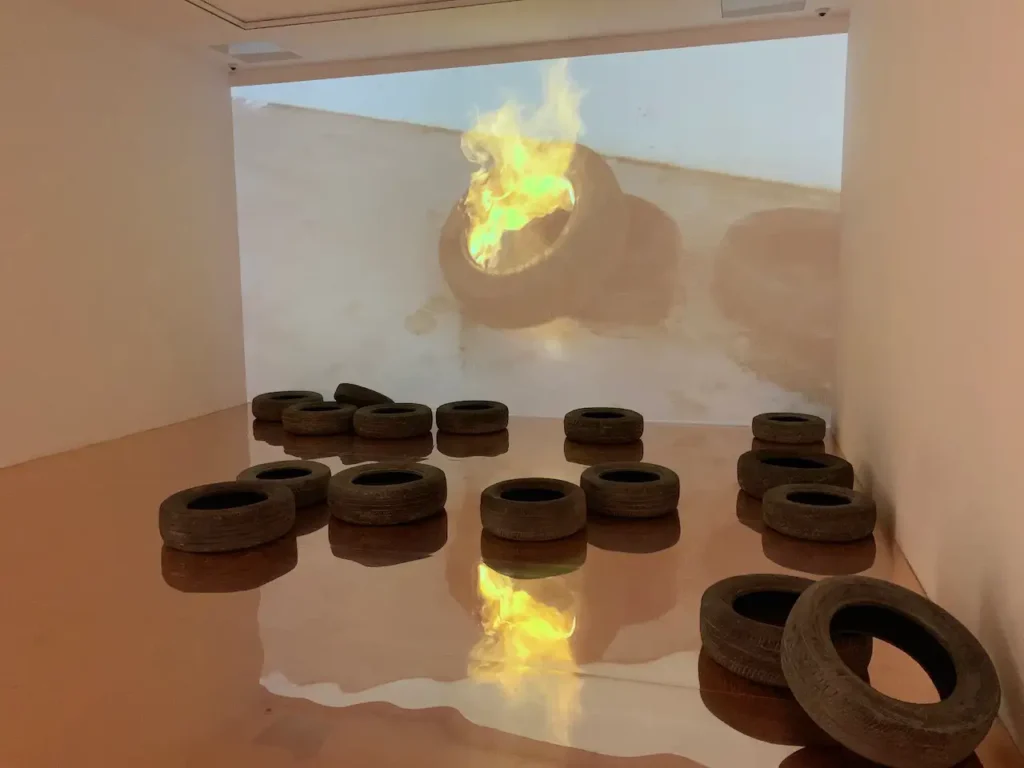MoMA PS1 is hosting a midcareer retrospective of Rirkrit Tiravanija, the “chef of the art world,” The exhibition showcases over 100 works that cover four decades of the artist’s career. It encompasses various media forms such as drawings, installations, films, sculptures, and participatory plays.

The influential multidisciplinary contributions of Rirkrit Tiravanija have left a profound mark on New York City and the global art scene. Drawing inspiration from art history, cinema, and Thai culture, he challenges Western notions of aesthetics and authenticity, aiming to generate a broader cultural understanding. The artist’s iconic contributions to relational aesthetics make him a pivotal figure within the loose collective that emerged in the 1990s.
Tiravanija’s early relational pieces, in which he offered food and created immersive environments, aligned with the cultural shifts toward multiculturalism in museums. The artist’s landmark work, “Untitled 1990 (pad Thai),” involves cooking and serving pad Thai to gallery visitors.
The exhibition spans the second-floor galleries, lobby, and Courtyard, showcasing rarely seen early works from the late 1980s and 1990s, including original sculptures, installations, and editions. Central to the exhibition is the presentation of historical interactive works performed as a series of plays on a plywood stage. These plays, performed by Columbia University students who are both current and former students of Tiravanija, follow a chronological plot and provide viewers with an opportunity to interact with the artist’s work in a live setting.

The critiques of the exhibition suggest that it falls short in its attempt to incite social change. Tiravanija’s work serves as a reminder of persistent problems outside the institution’s walls, underscoring the limitations of art in addressing urgent societal issues. His relational aesthetics may serve as a substitute for real democracy, lacking the transformative impact envisioned by some proponents of participatory art.



